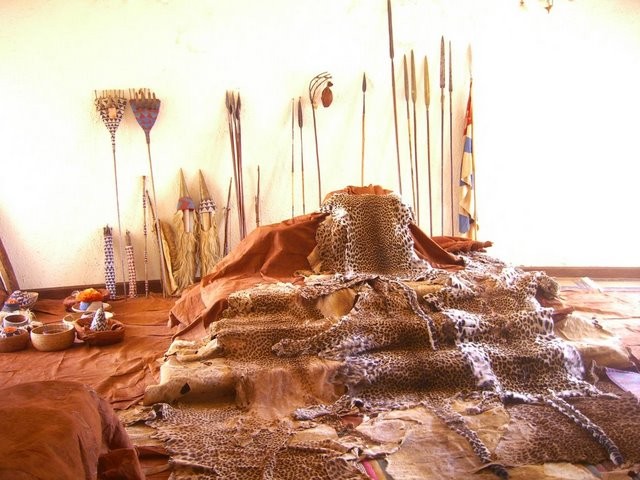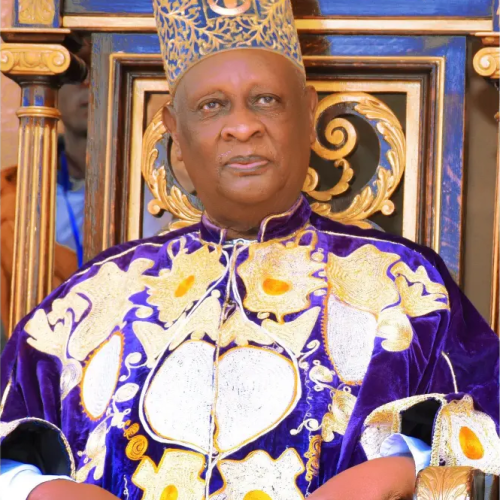- Omukama of The Kingdom of Bunyoro-Kitara
- Ruler of Hoima, Masindi, Kibaale, Buliisa, Kiryandongo, Kagadi and Kakumiro,
- The Lion of Bunyoro
- The Hero of Bunyoro
- The Hero of Kabalega
Heritage
The Banyoro
The Banyoro live in western Uganda occupying the present districts of Hoima,
Masindi, Kibaale, Buliisa and Kiryandongo. The Banyoro lived in scattered settlements in the populated parts of their country and their homesteads were rarely more than shouting distance from one another. Politically, they were organized under a King (Omukama).
Social Organisation
The King held executive, judiciary and legislative powers. His word was highly respected and almost equated to the word from God. The King’s subjects ensured that their King lacked nothing economically. Clans would bring food stuffs (Ebihotole) in turn and each clan had a specific duty to perform for the King. For example, Abaliisa clan were the shepherds of the Kings cattle (Enkorogi), the Abahamba clan were the hunters and body guards (Abakumirizi) for the King, the Abasiita clan being the artisans and craftsmen and the Bayaga clan were the chief entertainers of the King.
Politically
The King had absolute authority over his subjects. He appointed the county chiefs (Abamasaza) to administer each county. Bellow them were sub county chiefs (Abagomborozi) who were sub-county administrators. These received reports from parish chiefs (Abemiruka) and Sub-parish chiefs (Abatongole). At the very grass root were the village chiefs (Bakuru b’emigongo). With this hierarchical arrangement the king’s messages used to reach at the grass root very fast. Later on the office of the Prime Minister (Omuhikirwa/Katiikiro) was established to head the civil service of the entire Kingdom. All county chiefs report to him and he in turn reports to the King
Economically
The Kingdom of Bunyoro was the supplier of food stuffs to other neighboring kingdoms. The fertile soils of the kingdom enabled people to grow plenty of food for home consumption and the surplus was sold to the neighboring communities. People’s economy thus was greatly hinged on Agriculture carried on using traditionally made hoes. Barter trade was also common.

The Banyoro use pet names empako when greeting one another. These pet names are said to be of Luo origin.
The Banyoro observed new moon ceremonies. During a new moon ceremony, people would assemble at the King’s courts t
The Banyoro fear death very much Death was usually attributed to sorcerers, ghosts and other non-human agents.
The Duties of political authority started from the household. In Bunyoro, the household was in effect a district
His Majesty
Rukirabasaija Agutamba Solomon Gafabusa Iguru I.
- The Defender and Protector of Banyoro Oral Tradition
- The Defender of Traditional African Religions
- The Defender of the Religions
- The Defender and Protector of Banyoro Culture
On July 24, 1993, the Republic of Uganda constitutionally restored the traditional kingdoms that thrived in ancient times but had been abolished by the dictatorship in 1967. Unlike the broad political power and rights the ancient kings held, the new kings have no political power per se. However, HM The Omukama (King) Rukirabasaija Agutamba Solomon Gafabusa Iguru I. of Bunyoro-Kitara Kingdom and the Bunyoro-Kitara Kingdom were restored by the Amendment

